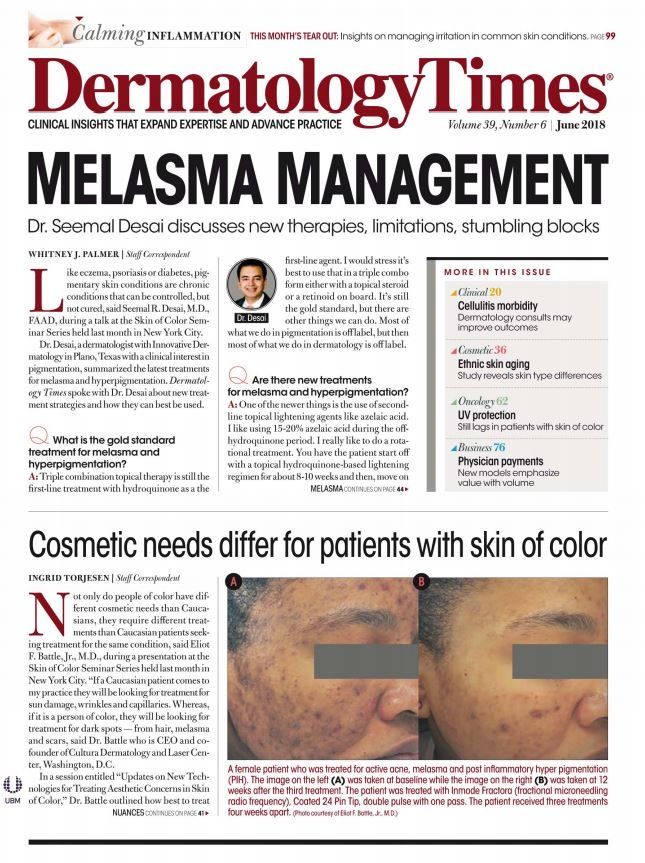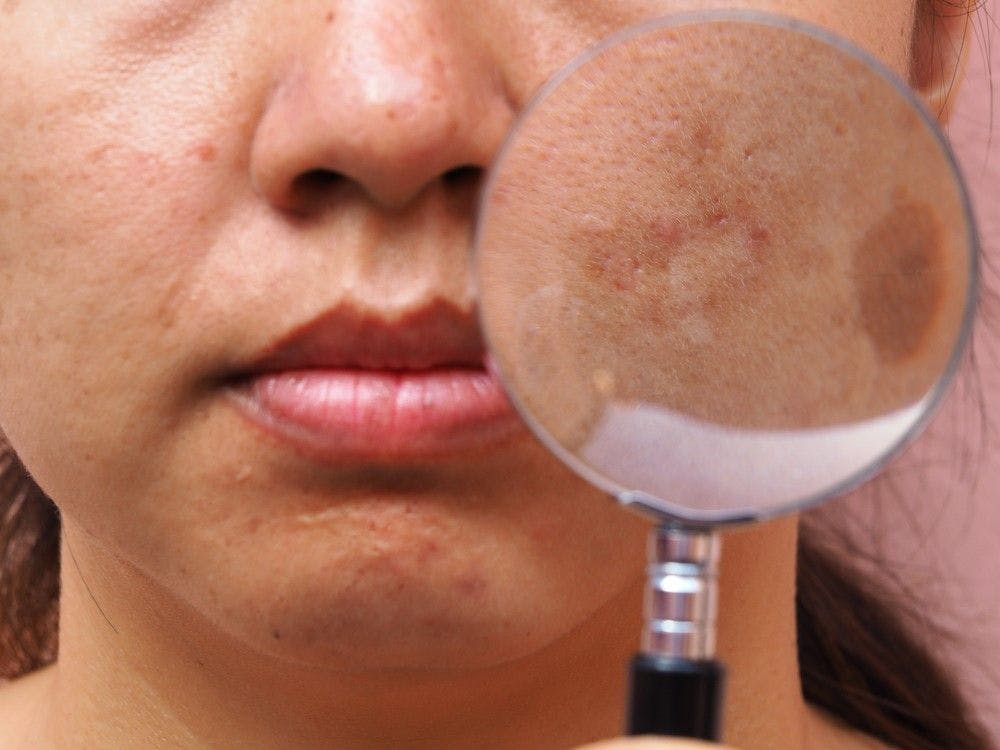- Acne
- Actinic Keratosis
- Aesthetics
- Alopecia
- Atopic Dermatitis
- Buy-and-Bill
- COVID-19
- Case-Based Roundtable
- Chronic Hand Eczema
- Chronic Spontaneous Urticaria
- Drug Watch
- Eczema
- General Dermatology
- Hidradenitis Suppurativa
- Melasma
- NP and PA
- Pediatric Dermatology
- Pigmentary Disorders
- Practice Management
- Precision Medicine and Biologics
- Prurigo Nodularis
- Psoriasis
- Psoriatic Arthritis
- Rare Disease
- Rosacea
- Skin Cancer
- Vitiligo
- Wound Care
Publication
Article
Dermatology Times
Do what the patient desires?
Author(s):
What is our obligation to our patients? To satisfy their desires for specific treatments or attempt to maximize health outcomes?
Dr. Levine

In a recent article published online in JAMA Internal Medicine (November 27, 2017) researchers evaluated the level of patient satisfaction related to the denial of specific patient requests during the course of an outpatient office visit. Not surprisingly, they found that certain types of denied requests resulted in reduced satisfaction with the health care provider. The authors conclude that in this new area of satisfaction-driven compensation, training clinicians to more effectively handle these types of problems would be worthwhile.
This reminded me of an encounter of a slightly different sort. Until recently, I was on a panel of dermatologists who performed teledermatology consultations for a company which contracted its services to insurance carriers. One such consult request was from a patient who had a history of acne and what she thought was an infection on her face. Examination of photo images revealed multiple crusted papules with little or no perilesional inflammation. Other than scattered comedones, no primary lesions were noted. I diagnosed her problem as acne excoriee and prescribed oral antihistamines as a short-term treatment plan until she could arrange an appointment with a local dermatologist.
Apparently, the patient was dissatisfied with my diagnosis and recommendations in that she was certain she had a skin infection which required antibiotics. She complained to the medical director of the telemedicine organization who subsequently contacted me. In his email to me he made the following comment, “As both of us know, so much of dermatology is art and not medicine and this component of the field is often difficult to translate in telehealth. While it is unclear if she truly had impetigo, she did have multiple erosions and providing her with mupiricin would have satisfied her primary concern and cleared any superficial infection with minimal risk.”
This whole situation annoyed me on several fronts (and led me to resign from the dermatologist panel). However, it also allowed me to focus on a few basic questions regarding patient management. What is our obligation to our patients? Is it to satisfy their desires for specific treatments or is it to attempt to maximize health outcomes - even if this turns out to be contradictory to the patient’s wishes?
I had the experience of a patient who presented with many benign-appearing nevi. I advised that none of these needed a biopsy since there were no suspicious clinical features. She insisted that these lesions were “ticking time bombs”. She proceeded to get a second opinion from a physician’s assistant in another dermatology practice who elected to biopsy 19 lesions, all of which were benign histologically. The patient concluded that my care was substandard and lodged a complaint with the state Board of Medical Examiners (who dismissed the complaint without comment).
It certainly would have been less hassle for everyone to accede to the patients’ demands and prescribe whatever they wanted or to perform the procedures that they had in mind. However, in my view, our role as trained physicians is to apply our knowledge and experience to maximize ultimate outcomes, even if this is contrary to what the patient wants and expects.
There are many times during my day when I discuss what I think are reasonable alternative management options and allow the individual to choose which she prefers. This is fundamentally different from having a person present with a list of prescriptions for us to fill or procedures to perform. Ultimately, we are responsible for providing appropriate, effective and safe therapies, but the price to pay for doing what one believes is optimal for the patient may be a dissatisfied or unhappy patient.
We all complain about urgent care providers who give patients with unknown rashes topical antifungal medications just to satisfy the person’s expectation for some treatment and to justify the fee for the visit. We can do better than that by evaluating the eruption and deciding what if any therapy would be helpful, irrespective of the patient’s perception about the cause of the rash.
With the rise of corporate medicine, a new subtle but definite “strong suggestion” to manage in certain ways may arise, as I experienced in my brief telemedicine career. As more of us come to be employees of business enterprises delivering health care - whose very existence depends on maximizing profits - the concern about potentially dissatisfied customers may produce the unintended consequence of pressure from above to practice medicine with the business philosophy of “the customer is always right”. We need to push back against this concept and maintain the independence to make medical decisions that we believe are the most beneficial.
As noted in the JAMA Internal Medicine article cited above, we must accommodate the inevitable financial considerations associated with the level of satisfaction of our patients. Even, apparently, unreasonable requests must be handled in a sensitive manner. We want our patients to feel good about their time with us. What can we do to possibly make the patient feel better about his appointment? Here are two suggestions:
• If the request involves a non-insurance covered service such as skin tag removal, consider treating a few lesions free of charge. There is no more appreciated act than free medical care.
• One of the main complaints that patients express today is that, “The doctor did not take the time to listen to what I have to say.” Allow him to tell his story on why he thinks that a certain service would be beneficial to him. This can be a somewhat painful experience knowing that the requested service may not be appropriate, but it could be time well spent.

Newsletter
Like what you’re reading? Subscribe to Dermatology Times for weekly updates on therapies, innovations, and real-world practice tips.















